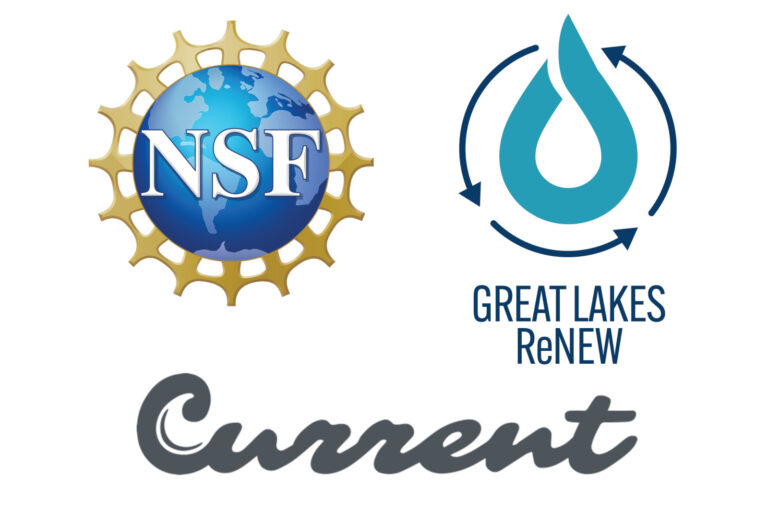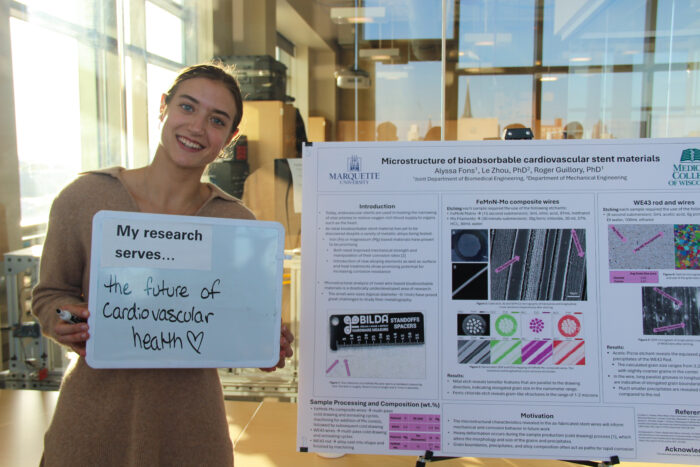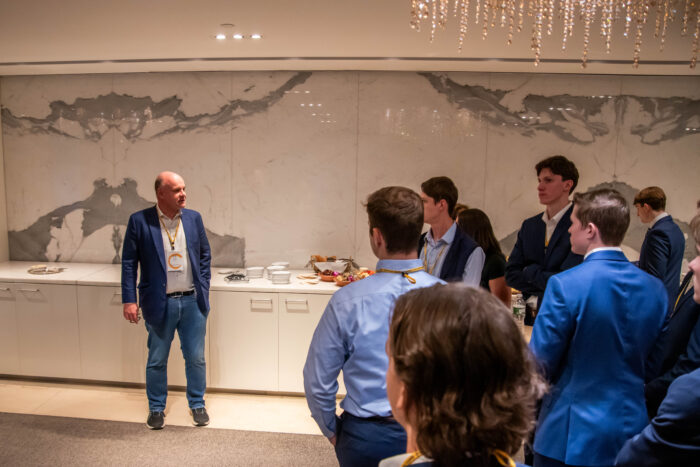Great Lakes ReNEW, an effort among Marquette University and numerous other industry, university and public sector partners, has been awarded up to $160 million over 10 years from the National Science Foundation to develop and grow job training, new technology R&D and DEI initiatives for the water sector with an initial focus on Wisconsin, Illinois and Ohio.
ReNEW is an ambitious plan to use inclusive, streamlined innovation; workforce development; and stakeholder engagement to drive a decarbonized circular “Blue Economy” that would leverage the region’s extraordinary water resources to transform the upper Midwest. ReNEW engages about 50 partners across six states and is being coordinated by Current, the Chicago-based water innovation hub.
“We are excited to be part of the Great Lakes Water Innovation Engine Leadership Team that will be guiding efforts in job training, DEI initiatives and R&D to develop the next generation of clean water technologies,” said Dr. Daniel Zitomer, chair and professor of civil, construction and environmental engineering, and director of Water Quality Center. “We are delighted to team with Current and the other participating industries and universities to build a center that will keep our environment clean while stimulating economic growth in Wisconsin and the entire Midwest.”
Zitomer is Marquette’s principal investigator on the program. Marquette is one of eight entities on the center management team.
With a potential NSF investment of nearly $1.6 billion over the next decade, the NSF Engines represent one of the single largest investments in place-based research and economic development in the nation’s history—uniquely placing science and technology leadership as the central driver for regional economic competitiveness and job creation.
ReNEW is one of 10 regional “engines” chosen by NSF to build partnerships across industry, academia, government, nonprofits and communities to drive inclusive growth through investment in research, development and commercialization of advanced technologies that address national and societal challenges. The initiative will also build workforce, entrepreneurship and engagement pathways that ensure benefits accrue to the people and places that need them most.
“This is an extraordinary opportunity for Marquette engineers to help shape a healthy economic and environmental future for our region,” said Dr. Kristina Ropella, Opus Dean of the Opus College of Engineering. “I am grateful to Dr. Zitomer for his leadership in this groundbreaking interdisciplinary collaboration!”
Workforce and entrepreneurship training is essential to support creation, implementation and management of new technologies and practices. ReNEW’s efforts will connect partners across workforce development systems, from community-based organizations to credentialing programs and community college systems to universities. The goal is a seamless pipeline of opportunities for individuals most affected by joblessness and systemic barriers to participation. Other approaches designed to advance the objectives of diversity, equity, inclusion and accessibility are incorporated into and advance the goals of every aspect of the plan.
The group was formed in response to a funding opportunity from the NSF’s Regional Innovation Engines program, a competition to catalyze and foster inclusive innovation ecosystems across the country. The new program offers the largest investments in NSF history and is expected to boost innovation capacity, create sustainable innovation ecosystems and drive inclusive economic growth for decades to come.
About Current
Current is an independent nonprofit water innovation hub. Founded in Chicago in 2016, our mission is to grow an inclusive blue economy, accelerate innovation and solve pressing water challenges. We bring together corporations, advocates, researchers and governments to develop water management policies and test new technologies—projects that would be too risky or even impossible without sustained collaboration. Current has helped attract more than $20 million in federal investments for water innovation in the region, launched the first real-time water quality monitoring tool for the Chicago River and supported the commercialization of more than a dozen water startups.



